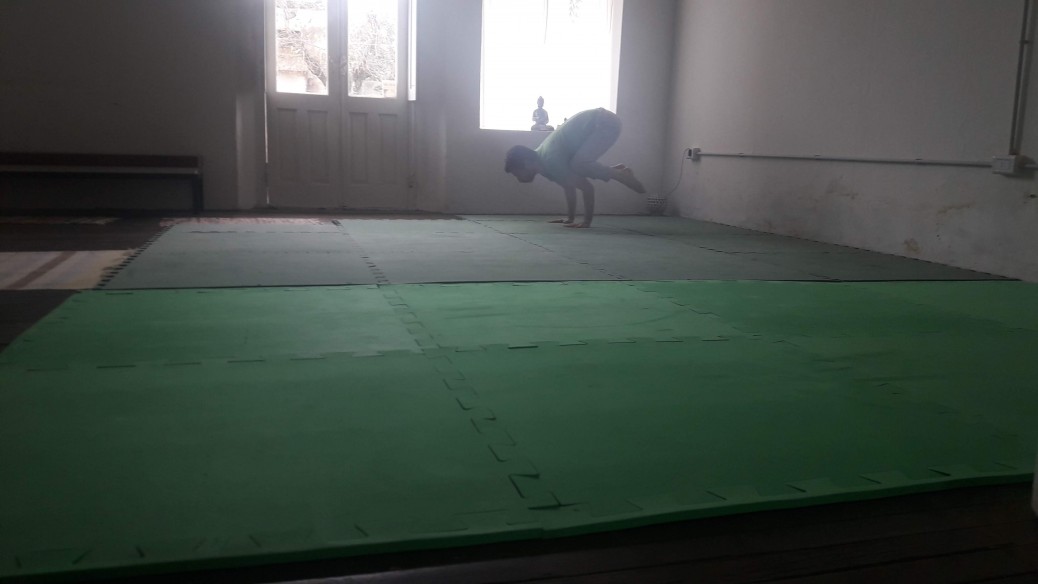IF LIFE IS A BLISSFUL COSMIC PLAY, THEN WHY ARE ALL BEINGS SUFFERING?
Osho replied – You, please, forget about all beings. You don’t know. I’m not suffering. You may be suffering; don’t talk about all beings. You don’t even know yourself. How can you know the other? Just talk about yourself, because things are already much too complicated. When you start talking about all, you will make it almost impossible for yourself to understand the thing. Just you will do. Say only this: “Why am I suffering? If life is a blissful cosmic play, then why am I suffering?” – Only this much will do. Forget about all beings – that is none of your business. If they want to suffer let them suffer. You, please, decide only for yourself. Even that is too much, not easy.
Why are you suffering? Because you are. To be is to suffer; not to be is not to suffer. The ego suffers. The whole is a cosmic play; it is beautiful. It is a tremendous celebration – moment to moment, moving to higher and higher peaks. You are suffering because you are not part of it. The ego is never part of the whole; the ego tries to be separate. The ego tries to have its own plans, to have its own ideas, to have its own goals. That’s why you are suffering.
If you become part of the whole there is no suffering. Suddenly you start floating with the stream. You are no longer moving upstream. You are no longer even swimming, because then too there is effort. You are just floating with the stream: wheresoever it leads, there is the goal. You have dropped private goals; you have accepted the destiny of the whole. Then you live easily, you die easily. There is no resistance.
Resistance is suffering – and you cannot win against the whole. So every moment you resist you fail, you suffer. It is frustration of failure, and then you become helpless and hopeless and everywhere you feel, there is a saying, that “man proposes and God disposes.” You cannot find more stupid a saying anywhere else.
God never disposes, but the moment you propose you have created trouble for yourself because all propositions are private. That means the Ganges wants to fall not in the Bay of Bengal but in the Arabian Sea. It will have to fall into the Bay of Bengal, that is how the whole has proposed it already. Now the Ganges proposes, “I would like to fall into the Arabian Sea,” and when it is not succeeding to move towards the west and it goes on feeling that all efforts are futile and she is moving towards the east, the idea arises in the mind that man proposes and God disposes. Why should God bother to dispose? God never disposed anything, but the moment you propose, you have created the possibility to be disposed.
Try to live without a goal, and then see: suffering disappears. Try to live without your ego, and there is no more suffering. Suffering is an attitude; it is not an actuality. You fall ill: you immediately start fighting with illness; suffering arises.
If you accept it, suffering disappears. Then you know that God wills this; there must be some point in it. It must be needed for your growth. That’s what happened on the cross with Jesus: just a moment before he was killed, the whole human mind arose in his being. He looked at the sky and said, “What is this? What are you trying to do? Why have you left me alone?” The human mind.
Jesus is beautiful. He is man, he is God, both – with all the frailties of humanity and with all the perfection of God: a meeting point, where the bridge disappears and the goal appears, the last point where the bridge drops. He was angry. He complained. He was saying, “You have betrayed me.” At this last moment everybody was waiting for a miracle – even Jesus deep down must have been waiting for a miracle-that the cross will disappear, angels will descend, and the whole world will know that he is the only begotten son of God.
The ego: “Why have you betrayed me? Why are you forcing me to see this? Your son is being crucified – where are you?”
In that moment, a disbelief must have entered in his mind. And I say this is beautiful – this shows that Jesus is both son of man and son of God. And that’s the beauty of Jesus and the appeal. Why has so great a part of humanity become Christian? If you look at Buddha, he looks to be simply a god, without any frailty of human beings. If you look at Mahavir, he looks superb, absolutely perfect. If you look at Krishna, you cannot find a single thing that can create disbelief in you. But Christ? – Frail, weak, trembling, with all the doubts, uncertainties, hesitations, with all the darkness that the human mind is prone to. And then a sudden burst and he is no longer the ordinary human being.
At the last moment he was still Jesus the son of Joseph and Mary; all doubts arose – naturally. I don’t say anything against him – natural, absolutely natural, it should be so. But then he understood the point: “What am I doing? It is not God who has denied me, it is I who am denying him. My expectations are not fulfilled.” In a flash of light he suddenly understood, “I am clinging to my ego. I am asking for miracles. I am asking to be saved! Who am I, and why should the whole bother, about me.” A smile must have come on his face, the clouds disappeared, he relaxed. And he said, “Thy will be done. Please, don’t bother about me. Don’t listen to my foolish mind. Who am I to suggest what should be done? Who am I to expect? And when you are there, why should I bother about it?”
In that relaxation of resistance, Jesus became Christ. He is no longer the son of Miryam, Joseph, he has become the son of God. Transfigured, transformed, a new being is born who accepts totally. Now there is no problem. If God wants him to be crucified, that is the way things are going to be – and that is the miracle! And, in fact, the cross proved the miracle. Christianity exists because of the cross, not because of Christ. If he was saved on that day we would have remembered him as a great magician or something like that. But in that deep surrender, where all complaints disappear, the meeting from being to being happened: he allowed God to take possession. That’s how – through death, through surrender – he is resurrected. He is no longer the same being – totally new, a virgin quality has entered. The old is gone, the new is born, and there is no continuity between the two.
You ask me if life is a blissful cosmic play, then WHY… then why is there suffering. There is suffering because you are still not part of the cosmic play. You have your own small drama, and you want to play it. You are not part of the whole; you are trying to create a small world of your own. Every ego creates its own world, that’s the problem.
Float with the whole, and suffering disappears. Suffering is symptomatic: it shows you must be fighting the whole, that’s all. You are not suffering for your sins committed in the past; you are suffering for the sin that you are continuing right now, committing right now. The sin is simple: to fight, not to accept.
The word “sin” is beautiful. It comes from a root which means “to separate.” The word “sin” itself comes from a root which means to separate: you are separated, that is the only sin. Once you are joined the sin disappears. The whole of Christianity depends on the concept of sin – that man is separated from God, then he is a sinner. Just the opposite is the concept of Patanjali – opposite, but complementary. He insists on “yoga,” to be joined together. Sin and yoga: sin means to be separate; yoga means to be joined together again. If you are joined together again with the whole, there is no suffering. The more you go far away from the whole, the more you suffer. The more you are, the more you will suffer.
SOMETIMES IT FEELS LIKE YOU ARE JUST A DREAM….
Osho Replied – That’s true. Now you have to deepen the feeling so sometimes you can feel that you yourself are a dream. Go on deepening the feeling. A moment comes when you know that everything that is, is a dream. Once you know that everything that exists is a dream, you are freed.
That’s the meaning of the Hindu concept of maya. It does not say that everything is unreal; it simply says everything is a dream. It is not a question of real or unreal. How will you define a dream – real or unreal? If it is unreal then how can it exist? If it is real then how can it disappear so easily – you open your eyes and it is no longer there? A dream must be somewhere in between reality and unreality. It must have something of the reality and it must have something of the unreality also. Because it exists it has to be real. A dream is a bridge – neither on this bank nor on that bank, neither here nor there.
If you take the dream as real you will become worldly. If you take the dream as unreal you will start escaping towards the Himalayas, you will become unworldly. And both viewpoints are extreme. Dream is just in the middle: it is real and unreal, both. There is no need to escape from it – it is unreal. And there is no need to cling to it – it is unreal. There is no need to devote your whole life to dreams – they are unreal. And there is no need to renounce them – because how can you renounce an unreality? They are not worth that.
And that’s how my concept of sannyas arises: you live in the dream knowing it, that it is a dream. You live in the world knowing it, that it is a dream. Then you live, but the world doesn’t live in you. You move into the world, but the world doesn’t move within you. You remain part. In fact, you enjoy it more – because it is a dream, you have nothing to lose. Then you are not guilt-ridden. In fact you start playing like children – because it is a dream! You can enjoy it; you can delight in it. There is nothing to feel guilty about. A life of celebration, a life of renouncement in the world, living and yet aloof; because when you know something is a dream you can enjoy it with no guilt, and you can move away from it with no problem.
You go to a theater, you go to see a movie: it is all a dream. For three hours you enjoy it. Then, lights are on – you remember that it was just a play, a game of light and shadow on the screen. Now the screen is empty. You come home; you forget about it. The whole world is a movie on a vast screen. When you understand, your eyes are opened. You know that it is a dream – nothing wrong in enjoying it, a beautiful dream at that, but now you are at home.
This is difficult. To be worldly is easy, because you take it as real. To be unworldly, become a hermit in the Himalayas, is also easy because you leave it as unreal. But to live in reality, knowing it well, that it is unreal, knowing it, that it is a dream, is the most difficult thing in the world – and to pass through that most difficult thing helps you to grow.
Worldly people are cunning, but not intelligent; unworldly people are simple, but not intelligent. Those people who live in the market are very cunning but not intelligent, and those people who have left the world and moved to the temples and the Himalayas – they are simple, not cunning, but they are also not intelligent, because intelligence grows only when you move in all sorts of situations – but aware. You go through hell, but with a fully aware mind, then intelligence grows. Intelligence needs challenges to grow. If you leave the challenge, you simply rot, you don’t grow. That’s why I insist: be in the world, and don’t be of the world.
Tags: Patanjali Sin And Yoga










